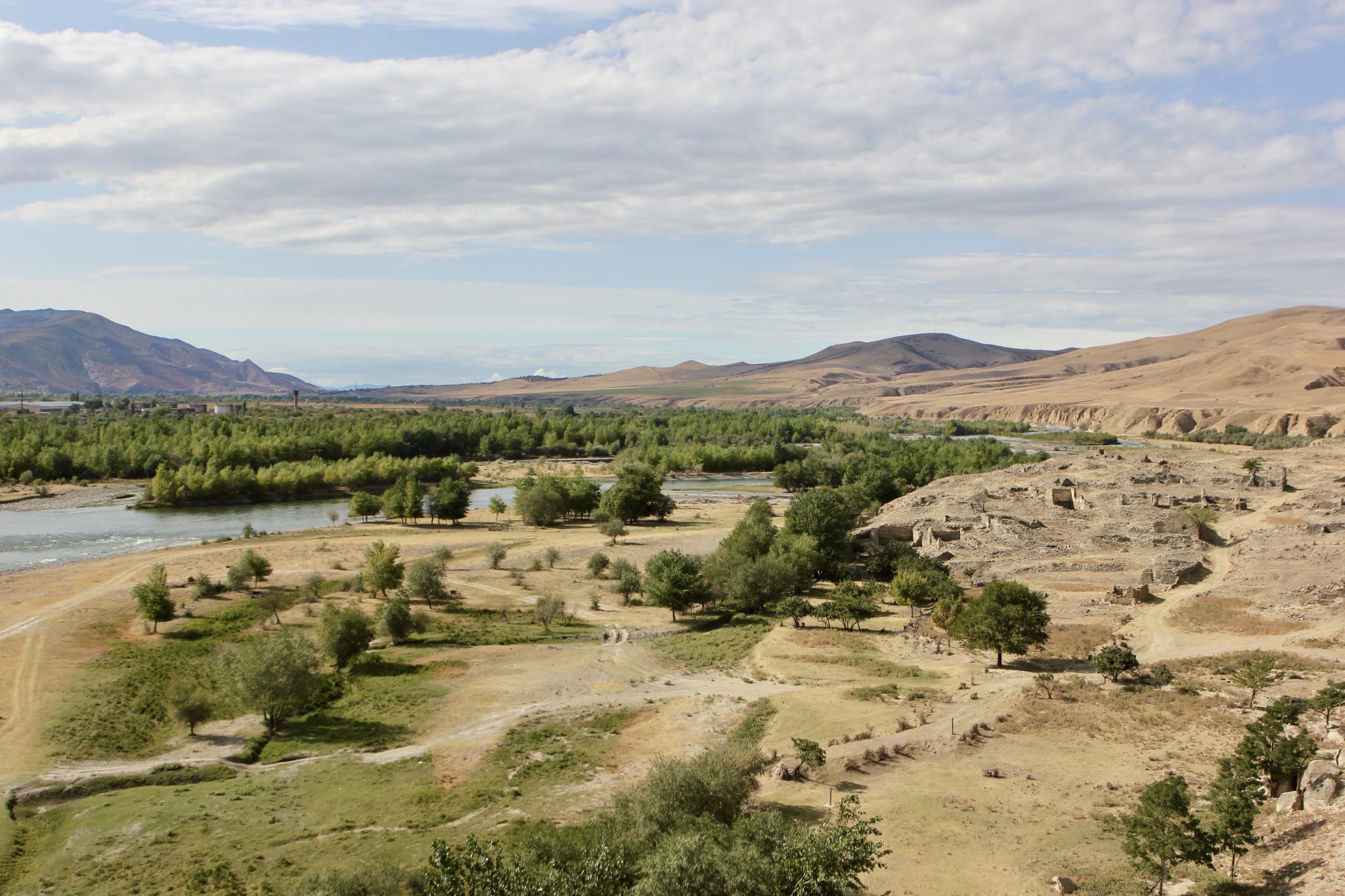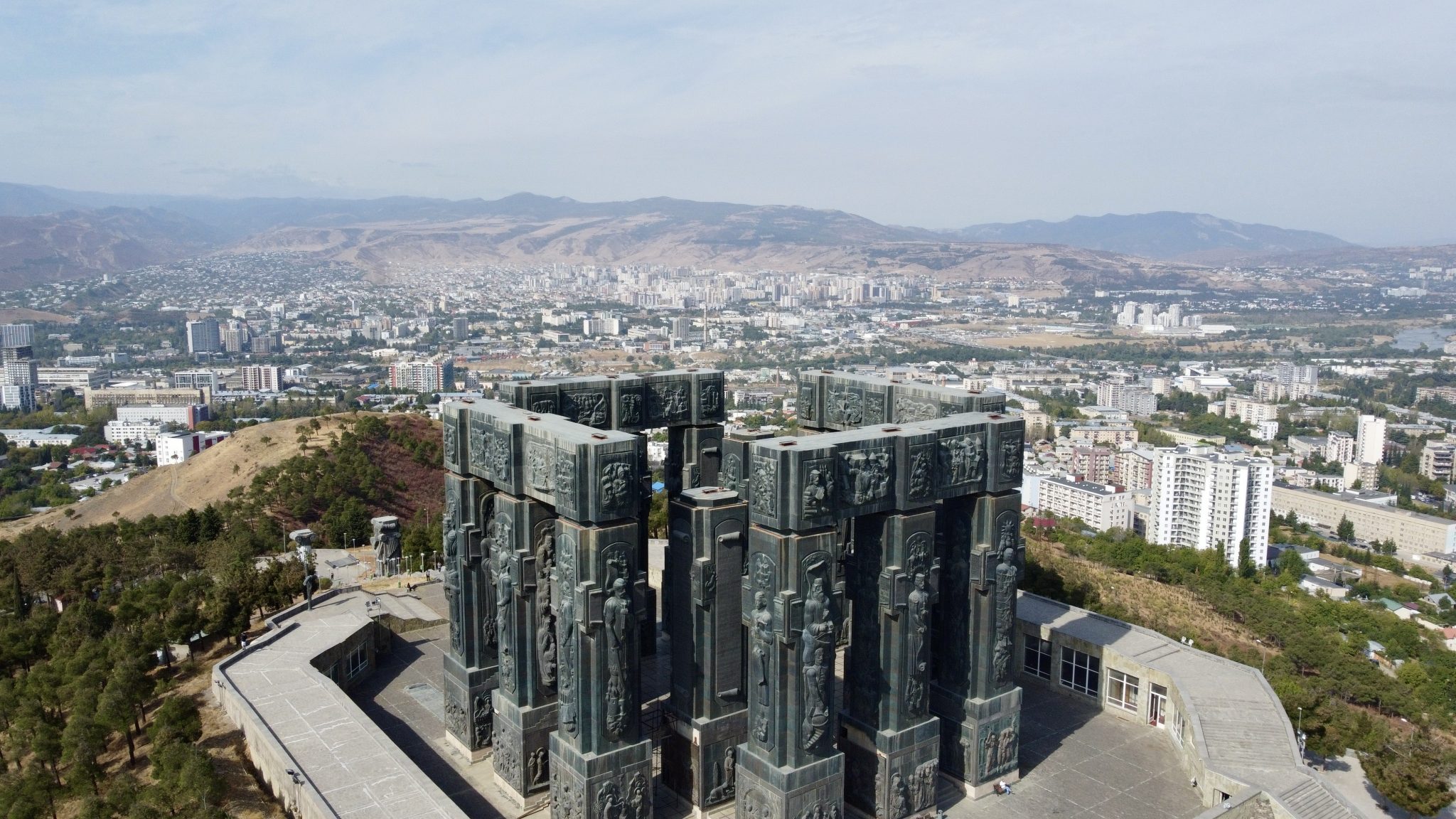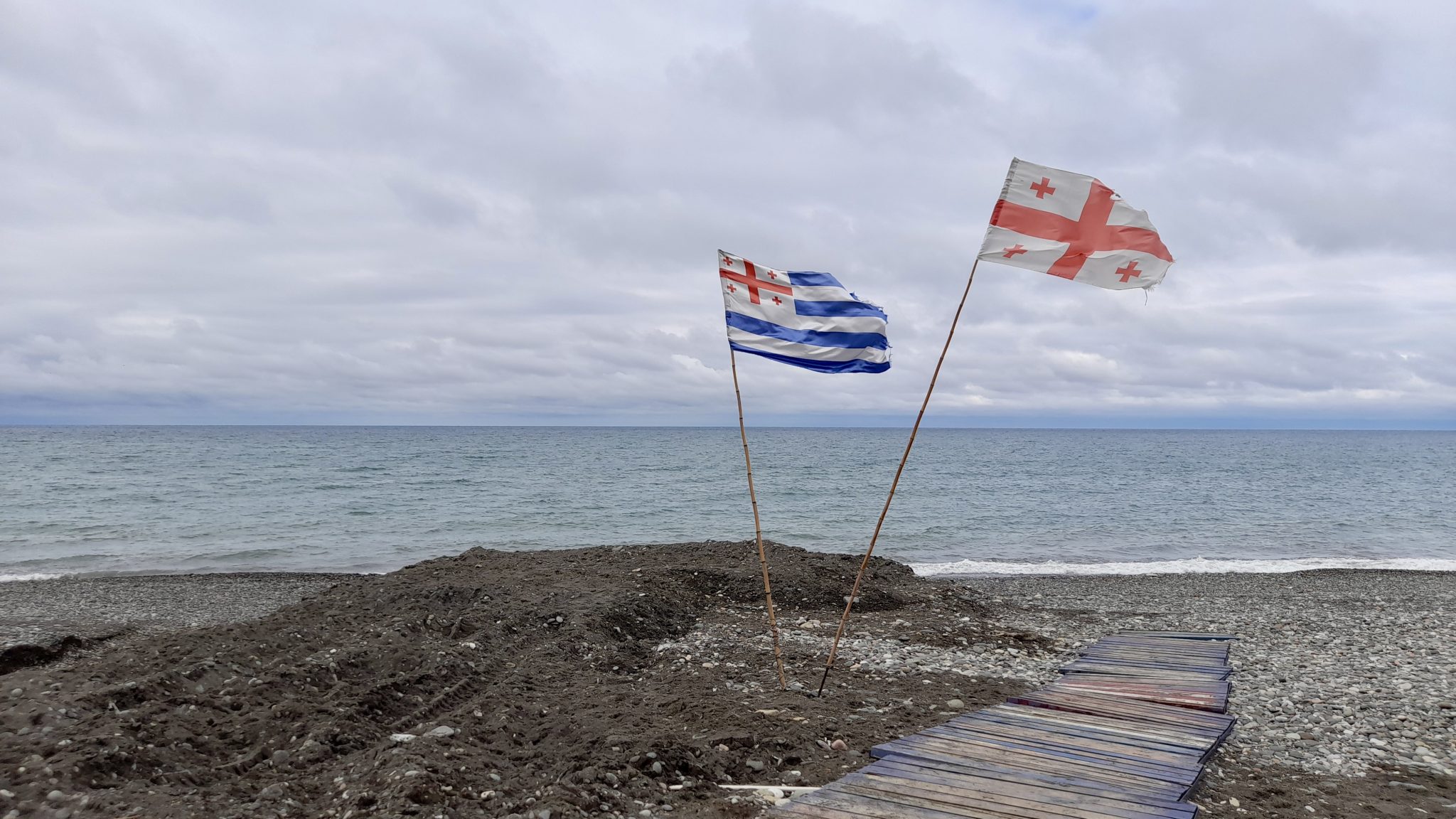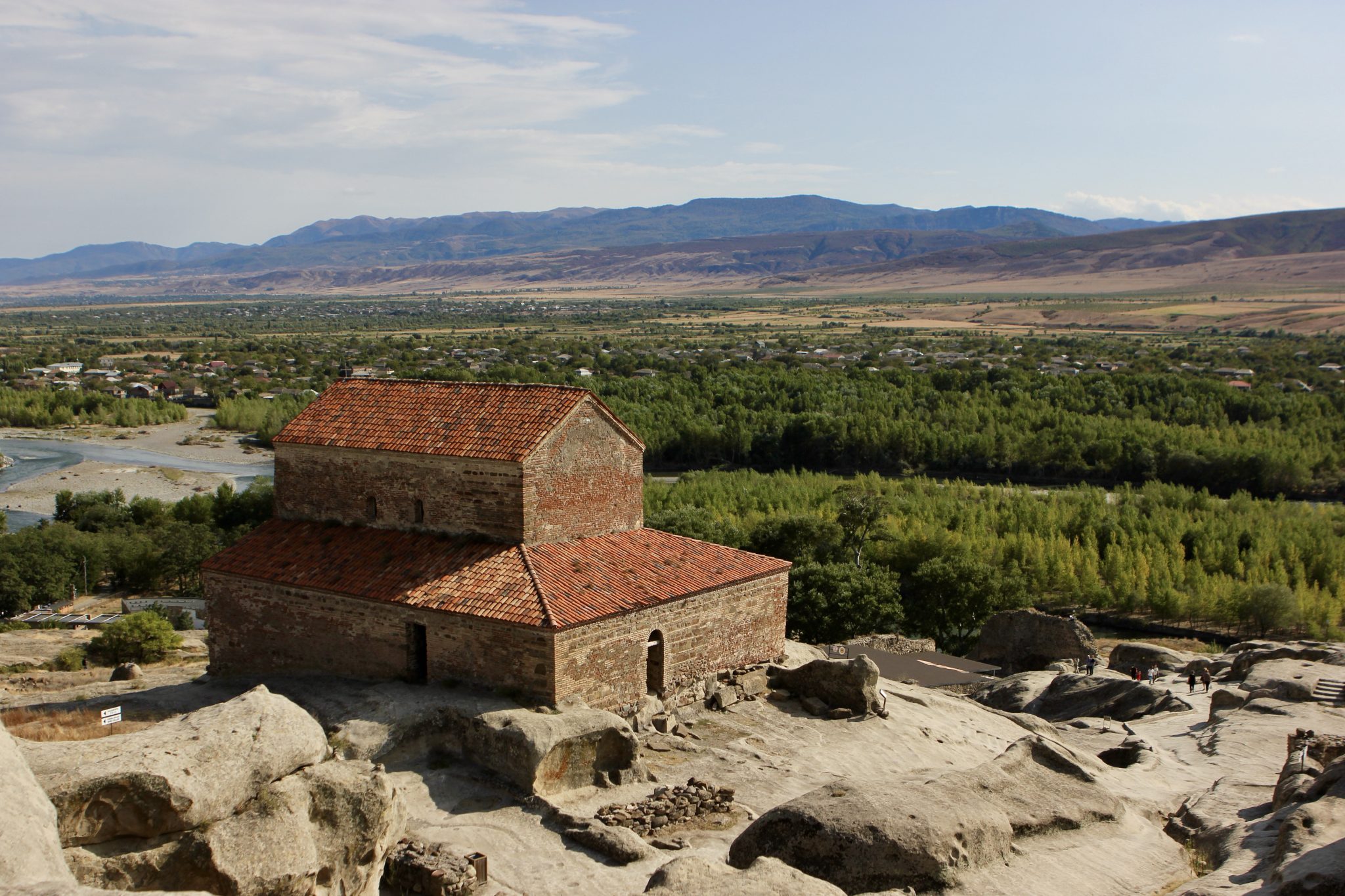12/10/2022
Q&A with Natia Seskuria, founder of the Regional Institute for Security Studies in Tbilisi, Georgia

Natia Seskuria is a defence and security expert who has founded the Georgia-based Regional Institute for Security Studies in partnership with the Royal United Services Institute. Previously she served in Georgia’s Ministry of Defence and as senior adviser to Georgia’s National Security Council.
With a large influx of Russian citizens into Georgia fleeing mobilisation and continued concerns over an expansion of the Russo-Ukraine War into Georgian territory, the FCD’s David Shoup met with Seskuria in Tbilisi to discuss the rising tensions and upcoming launch of the RISS on 16 November.
Georgia fell victim to Russian cyber-attack in the 2008 invasion. What lessons did the country draw from that experience?
In 2008 Georgia was the first country against which Russia launched a full-scale military assault and integrated a cyber operation, causing greater destabilisation and shock to society. Georgia hadn’t been used to these sorts of aggressive actions from Russia in cyberspace, hence the resilience of the country was significantly low. Russia has used Georgia as a testing ground for its offensive cyber campaigns. I think the Georgian experience has largely contributed to other countries’ resilience, especially in the region, in terms of shifting policies and increasing capabilities to successfully cope with Russian directed cyber operations. For example, this year when Moscow prepared the ground to launch military aggression against Ukraine, the Ukrainians have shown an increased readiness towards countering Russian cyber-attacks that minimised the overall destabilising effects that the Kremlin aimed to achieve.
I think the Georgian experience has contributed to that especially in terms of raising societal awareness and as we have seen, a large-scale cyber escalation failed to break the Ukrainian spirit to fight.
But the August War experience was quite significant for Georgia because during the escalation, Georgia experienced massive cyber-attacks, targeting the websites of the Georgian government, the President, Ministry of Foreign Affairs, the commercial banks and media outlets that ended up being almost completely shut down. This had never happened before. Over time, Russia has invested a lot of resources in increasing its cyber capabilities and Georgia has been repeatedly targeted by more sophisticated tools.
The Russian GRU has also become a much more visible actor in offensive cyber operations. I can give you a relatively recent example of October 2019 when Unit 74455 of the Russian GRU carried out a widespread cyber-attack against Government websites, servers, and the websites of the main Georgian media outlets, the court and NGOs. Later on, according to a joint investigation carried out by Georgia, the US and UK and EU states revealed that Russian GRU was responsible for these attacks.
In terms of cyberwarfare, Georgia is always under a lot of pressure, Russia has used various means to undermine Georgia’s resilience. One of the key countermeasures is, of course, to work closely with strategic partners and allies. For example, the UK has played a prominent role in terms of helping Georgia to increase its cyber resilience and capabilities of state agencies, but also in terms of raising general awareness of the population about existing cyber threats and challenges. My organisation has also been working with UK counterparts to contribute to this goal.

What do some of these operational resilience improvements look like, both on Georgia’s side as well as NATO countries and others in the Caucasus and Balkan regions that are looking at the example of what happened here, and what more still needs to be done?
Georgia is a very good example on a micro-level, because Russia has used several methods to undermine Georgia’s security and democratic processes within the country. Once successfully tested, Russia tends to use similar methods of warfare against other countries in the post-Soviet region, but also against European states – one good example is disinformation. Obviously, Georgia has been and still is one of the primary targets of Russian disinformation. It is noteworthy how similar the elements and key messages of the Russian disinformation campaigns were just before the August War compared to the methods used against Ukraine earlier this year. The narratives Russia has used against Ukraine echoed Russia’s Georgia playbook – for instance in 2008, the Kremlin claimed that Georgians were committing the genocide in the Tskhinvali region (the so-called South Ossetia). This year, the Kremlin accused Ukraine of organising a genocide in the Donbas region. Given how easy it is to predict these methods, the Ukrainian government was quite prepared, and it is fair to say that Kyiv is winning in the information space.
Ukrainian strategic communications efforts have been quite significant. Georgia was less experienced and prepared in 2008 to counter these narratives. I think these sorts of examples of offensive cyberwarfare and aggressive disinformation campaigns have also demonstrated the importance of the use of unconventional means and enabled the NATO countries to increase their general resilience, not only within NATO but also within its partners by investing resources and sharing knowledge.
Georgia as one of NATO’s partnering countries that is aiming to eventually join the alliance has also been one of the beneficiaries. NATO allies have been contributing to increasing resilience, but also awareness among the population. Yet, it is still very important to cover all segments of the society because Russia is well-known for using existing gaps and vulnerabilities. In many cases, they tailor disinformation campaigns to representatives of society that may be more vulnerable towards these narratives, such as ethnic minorities and citizens living in rural areas.
The war in Ukraine is often called an information war. How is Georgia adapting to new disinformation threats in the context of this war?
The war in Ukraine changed the information space. The narratives that are coming from the Kremlin through pro-Kremlin actors in Georgia are becoming much more aggressive, more anti-Western, and anti-NATO. They are aiming to change public opinion and shift the perceptions on the key national security issues. Georgia is a country where support for NATO and EU integration is very high. It has been consistently high since the August War of 2008. According to the various opinion polls, 70-80 percent of the population consistently supports a pro-Western foreign policy direction.
That said, Russia is trying to shape the narrative, and they have momentum in that sense as they are trying to use the war in Ukraine to highlight the dangers of pursuing a pro-Western foreign policy. According to them, such standing can lead to a renewed military aggression from Russia. They are trying to convince the population that if Georgia remains neutral and formally rejects NATO or EU aspirations, this could be a guarantee of peace for the country, and could create more favourable relations with Russia, that would be willing at some point to seek consensus with the Georgian government in terms of the occupied regions.
Of course, this is a fabricated narrative and there is no evidence that if Georgia rejects its current stance, it can restore its territorial integrity. Quite the contrary, given the complex challenges that Georgia is facing, neutrality is a code-word for aligning with Russia.
So, the war has created further challenges by boosting the Kremlin disinformation. It is noteworthy that these sorts of narratives have been coming from local actors rather than Russian media as it happens in many other countries. The radical, pro-Russian groups have been disguising and portraying themselves as advocates of Georgian nationalism. So, it is not always evident for the population that these local actors can be funded or supported by the Kremlin. It is important to debunk these false narratives and plan a consistent and efficient campaign to counter it.

How has the war in Ukraine changed Georgian politics?
It has been several years since Georgian politics has been quite polarised. One of the recommendations and conditions for Georgia receiving EU candidacy status is exactly to resolve this polarisation. I think the war in Ukraine has raised tensions internally and increased the sense of insecurity both in Georgia and more widely in the region.
There is a sense that regardless of the outcome – and most Georgians are hoping and believing that Russia will lose in Ukraine – Georgia will remain vulnerable and is still in the Russian menu until at least Putin is in power. 20 percent of Georgian territories are still occupied, and Russia has stationed two fully operational military bases on the Georgian territories – the 7th military base of the Russian 58th army was deployed in Abkhazia and the 4th Russian military base – in the Tskhinvali region. There is a lot of incentive for further provocations, and lately it is becoming increasingly difficult to predict what is going on in Putin’s head. For instance, there is a theory that at some point Putin may want to use Georgian vulnerability to have a small victorious war. Things are going terribly wrong in Ukraine as we see, the Russian plan has been failing. So, the occupation of Georgian territories creates a solid ground for Russia to engage in further provocations – this is the biggest national security threat for Georgia.
The aggression in Ukraine demonstrates that Russia has a very ambitious plan for the entire region. Putin is driven by illusions that Russia can regain its great power status in a multipolar world through restoring its sphere of influence that includes Ukraine and Georgia. So, the increased sense of insecurity in Georgia is firstly due to Russian imperial ambitions and secondly Georgia’s fragile situation with regards to the occupied regions, as seen in the cases of the ongoing “borderisation” which entails the gradual annexation of further Georgian territory through the expansion of its already illegal occupation zones. This creates a terrible humanitarian situation on the ground and shows that Russia can escalate tensions at any time.
Ukrainian officials have alleged that Georgia is a site of Russian sanctions evasion. What is your position on this question?
The claims made by the Ukrainian intelligence, as well as various officials were not supported by any evidence proving that Georgia has been creating favourable conditions for Russians to evade sanctions. When the entire democratic world is standing with Ukraine, such an accusation is very serious in its nature and can significantly damage Georgia’s reputation. Regardless of strained relations, there is much precaution needed in making these kinds of statements. Most Georgian citizens are very much supportive of the pro-Western aspirations, so it is crucial for Georgia to stand with the West in terms of their approach to Russia. Becoming a safe haven for Russians in terms of evading sanctions would be an absolute disaster for Georgia’s future.
We do have a lot of Russian citizens coming to Georgia, and this creates various security problems and raises many questions. But I don’t think there is any ground to say that Georgia has been used in terms of sanctions evasion.

What challenges are Georgia facing now regarding the tens of thousands of Russians who have recently crossed the border fleeing conscription? Are there organised crime risks you see potentially emerging from this?
The situation has changed since the West imposed sanctions on Russia. We have seen the first flow of Russians coming into the country in early March and April. Since then, Russians kept on coming to Georgia. But the situation changed dramatically a couple weeks ago when the mobilisation was announced by the Russian president.
The first problem I see here is the security risks related to this massive inflow of Russians into the country because we don’t know what intentions they have. I think it is fair to say that not everyone is against the war, and it is rather the intention to flee conscription that motivates them. So, this poses a problem because some of these people might have supported the war against Georgia in 2008 and some might still support the ongoing war in Ukraine.
There is a segment of Russians coming into Georgia who have been against the war and Russia’s imperialist aspirations for a long time. We have seen opposition journalists and some human rights activists fleeing to Georgia. But, because Russians are coming to Georgia in large numbers, it is hard to control this very mixed flow of people into the country.
Aside from the security risks, almost all of them (unless they have Georgian origins) are coming here without any knowledge of the language, and this limits their opportunities to get any sort of job. In the long term, if they wish to settle down in Georgia, this increases the risk of them engaging in criminal activities. At the same time, I would say there are a number of intentions. There are those coming here to use Georgia as a transit route to Asia or elsewhere. There are those coming here working for IT companies and other remote jobs who have been here since March or April and are more or less financially stable. And the last flow of Russians includes those desperate to leave Russia because they suddenly realised that the war can directly concern them and their families.
It creates uncertainty and potential criminal risks because these people will need to survive somehow. It is yet to measure these risks as the last flow has been coming here for just a couple of weeks. I will assume that many of them will struggle financially because they don’t have jobs and don’t necessarily have remote working capabilities, so this of course creates security risks for Georgia.
When Transparency International surveyed Georgians in 2020, they found that more than half perceive that Georgian government officials abuse their power. What sort of threat does corruption pose to Georgian democracy and stability?
Corruption is, of course, a huge risk for national stability especially for young and immature democracies. Given Georgia’s aspirations to join the EU and NATO, I think it is crucial to make sure that there is a degree of trust between the citizens and the government officials as well as greater accountability and transparency.
Georgia went through a long corrupt past, and over time, things have certainly changed for the better. From low to high level corruption – this problem concerned all segments of society. Georgia went through layers of successful reforms, but creating an anti-corruption environment still remains a challenge and a work in progress.
Ensuring greater transparency within the state institutions would greatly contribute to Georgian democracy and system resilience that will in turn increase Georgia’s chances to integrate into the European and Euro-Atlantic space.
You are launching the Regional Institute for Security Studies in Tbilisi next month in partnership with the Royal United Services Institute. What are you planning to do with this organisation and what will be your primary focuses?
The Regional Institute for Security Studies (RISS) is a Georgian think tank that operates in partnership with the leading British think tank, Royal United Services Institute (RUSI). We are a research-led institution focusing mainly on defence, security and intelligence studies. The idea to establish an independent institute in Tbilisi was born about three years ago. Our aim is to promote research and academic interaction within the region, because as we have seen, this region remains particularly turbulent in terms of the threats and challenges that it constantly faces. The institute will bring and promote RUSI’s expertise into the region but will also engage with the most prominent regional experts. In my view, it is very important to create a regional platform and encourage greater interaction among the leading regional voices, politicians, policy makers and thought leaders.
Our institute is hoping to become a regional hub for research particularly on Black Sea and provide strategic insights to help policy makers make informed decisions that will enable them to come up with innovative policy solutions. Our main interest lies in the Black Sea region, and we aim to keep a multi-disciplinary and multi-dimensional approach.
We see our role in attracting regional leaders for strategic discussion, which will have a direct impact on strengthening security, stability and democracy in the region.
